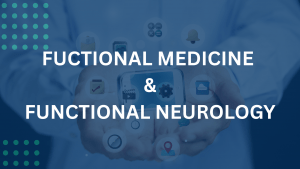Last Updated: October 2025
Many people think of autoimmune diseases as problems limited to a single organ—such as the thyroid, skin, or joints. However, new research shows that autoimmune activity often affects the brain as well. When the immune system becomes chronically overactive, it can mistakenly attack the body’s own tissues, including nerve cells and brain structures. Over time, this immune-driven inflammation can contribute to brain fog, memory loss, mood changes, and even neurodegeneration.
At The Carroll Institute in Sarasota, Dr. Garland Glenn, DC, PhD, AFMC, specializes in uncovering and calming the root causes of autoimmune activity. Through Functional Medicine and the ReCODE Program, we help patients identify hidden triggers—such as toxins, infections, or nutrient imbalances—that overactivate the immune system and harm brain function. By restoring balance, it’s possible to reduce inflammation, stabilize autoimmunity, and protect the brain from further decline.
How Autoimmunity Affects the Brain
Autoimmune diseases occur when the immune system misidentifies healthy tissue as a threat. Consequently, this misdirected attack leads to inflammation and tissue damage. When inflammation crosses the blood-brain barrier, it can cause what researchers call autoimmune brain inflammation or “neuroautoimmunity.” Over time, this chronic inflammation disrupts brain signaling, slows neurotransmitter function, and impairs memory and focus.
In addition, cytokines—the chemical messengers of the immune system—can alter how neurons communicate. Therefore, people with autoimmune conditions often experience symptoms such as fatigue, depression, anxiety, or cognitive decline, even if their primary autoimmune diagnosis doesn’t directly involve the nervous system.
The Thyroid–Brain Connection: When Hashimoto’s Affects Cognition
Hashimoto’s thyroiditis is the most common autoimmune condition in the U.S., and it primarily targets the thyroid gland. However, because thyroid hormones are essential for brain metabolism, energy production, and neurotransmitter balance, low or fluctuating thyroid function can profoundly affect cognition. Patients may notice brain fog, slower processing, forgetfulness, or even mood changes.
Moreover, inflammation from Hashimoto’s can cause immune molecules to enter the brain, amplifying oxidative stress and damaging neurons. For this reason, addressing Hashimoto’s is not only about balancing thyroid hormones—it’s about calming the autoimmune attack itself. At The Carroll Institute, we assess both thyroid function and immune activity to stabilize brain health from the inside out.
Other Autoimmune Diseases That Impact the Brain
- Lupus (SLE): Can trigger neuroinflammation, migraines, or “lupus fog.”
- Rheumatoid Arthritis: Causes systemic inflammation that accelerates brain aging.
- Celiac Disease and Gluten Sensitivity: May lead to gluten ataxia or immune-mediated cerebellar damage.
- Multiple Sclerosis: Directly targets myelin—the protective sheath around brain and spinal cord nerves.
- Pernicious Anemia: An autoimmune attack on intrinsic factor can lead to B12 deficiency and cognitive decline.
Even though these conditions differ, they share a common pattern: chronic inflammation, disrupted metabolism, and immune dysfunction. Consequently, many people experience cognitive changes before they realize autoimmunity is involved.
Functional Medicine: Calming Autoimmunity at Its Source
Traditional medicine typically manages autoimmune disease by suppressing symptoms with medication. While that approach can be useful in the short term, it rarely identifies why the immune system became unbalanced. Functional Medicine, however, seeks to uncover the root triggers—whether environmental toxins, infections, nutrient deficiencies, or chronic stress—and remove them. As a result, immune activity naturally calms and tissue healing begins.
At The Carroll Institute, Dr. Glenn uses advanced testing to measure inflammatory markers, thyroid antibodies, cortisol rhythm, and gut health. This data-driven approach makes it possible to design a personalized plan that reduces immune overactivity while strengthening the brain’s protective systems.
Calming the Immune System: Steps Toward Remission
- Identify Triggers: We test for food sensitivities, toxins, and infections that drive inflammation.
- Heal the Gut: Since over 70% of the immune system resides in the gut, balancing the microbiome reduces autoimmune activation.
- Balance Hormones: Stable thyroid, adrenal, and sex hormones support immune regulation and brain energy.
- Lower Stress: Cortisol imbalances worsen immune dysfunction, so stress management is critical.
- Repair Nutrient Deficiencies: Replenishing vitamin D, omega-3s, zinc, and selenium helps modulate immune response.
By systematically addressing these areas, most autoimmune conditions can be significantly calmed or placed into remission. When inflammation settles, the brain is able to function more clearly, and patients often report improved mood, sharper memory, and renewed focus.
Saving the Brain Through Immune Balance
The link between the immune system and the brain is undeniable. Therefore, calming autoimmune activity isn’t just about managing a single diagnosis—it’s about preserving brain function for life. Through Functional Medicine testing and the ReCODE framework, Dr. Glenn helps patients stop the cycle of inflammation, rebuild resilience, and prevent further neurological damage.
If you’ve been diagnosed with Hashimoto’s or another autoimmune condition and are noticing brain fog, forgetfulness, or mental fatigue, it’s not “just in your head.” Book a Discovery Call with The Carroll Institute to uncover what’s driving your immune imbalance and learn how to calm it—before it affects your brain further.
Sources
- Reversal of Cognitive Decline — NIH (2014)
- Rationale for a Multifactorial Approach — NIH (2022)
- Thyroid Hormone and Brain Function — PubMed
Medically reviewed by Dr. Garland Glenn, DC, PhD, AFMC (Advanced Functional Medicine Clinician)
The Carroll Institute — Sarasota, FL
Learn more about Dr. Glenn’s background and credentials: About Dr. Garland Glenn
This content is for educational purposes only and does not replace personalized medical advice.

Dr. Garland Glenn, DC, PhD, IFM, AFMC
Founder & Clinical Director, The Carroll Institute — Sarasota, FL
Dr. Garland Glenn is a board-certified chiropractic physician and functional medicine practitioner specializing in cognitive health, neurodegeneration, and root-cause medicine. Certified as an AFMC (Advanced Functional Medicine Clinician) and Institute for Functional Medicine (IFM) trained, he has also completed over 500 hours of advanced training in Functional Neurology under Dr. Ted Carrick, founder of the Carrick Institute.
At The Carroll Institute, Dr. Glenn leads Sarasota’s only ReCODE-certified Functional Neurology program, helping patients reverse or prevent cognitive decline through the Bredesen ReCODE Protocol, neuroplasticity exercises, and personalized functional medicine care.
Learn more about his background and approach at About Dr. Garland Glenn.
– schedule now –
free discovery call
To help you get started, we offer a free 20-minute Discovery Phone Consultation. During this call, you will be able to talk with one of our Certified Brain Health Coaches about what going on with you or your loved one and find out if we can help. Please review our FAQs prior to scheduling your free call. We look forward to talking with you soon and helping you Save Your Brain.
(yes, it’s totally free!)
ReCODE® is a registered program developed by Dr. Dale Bredesen and licensed through Apollo Health. Dr. Garland Glenn is a certified ReCODE practitioner.



